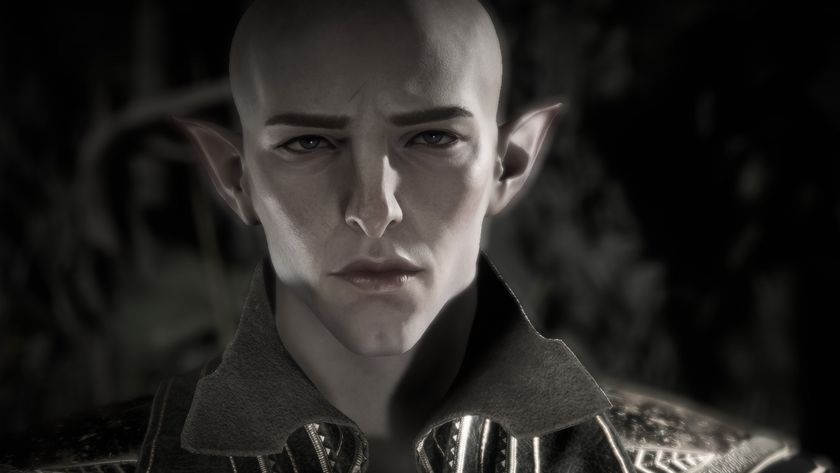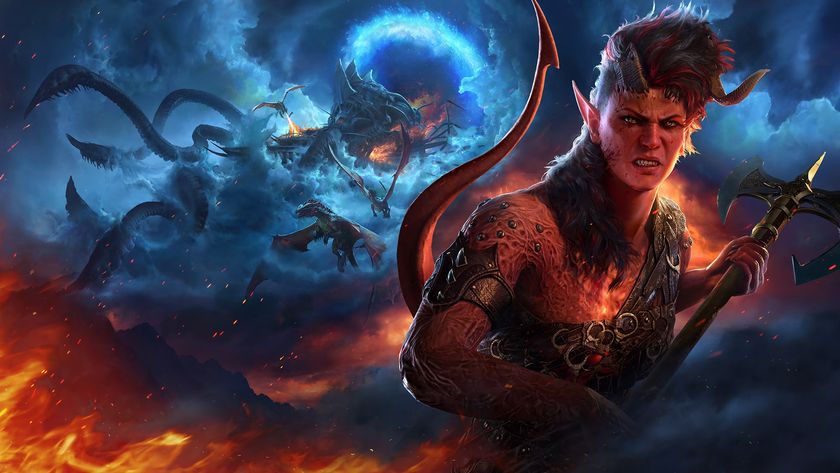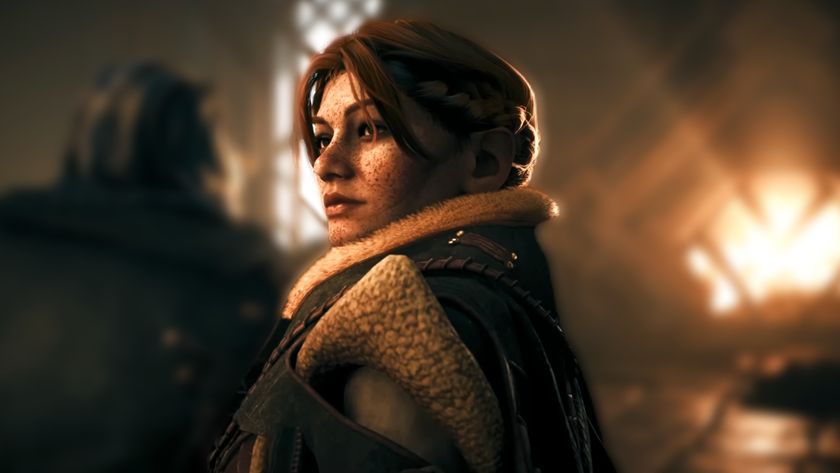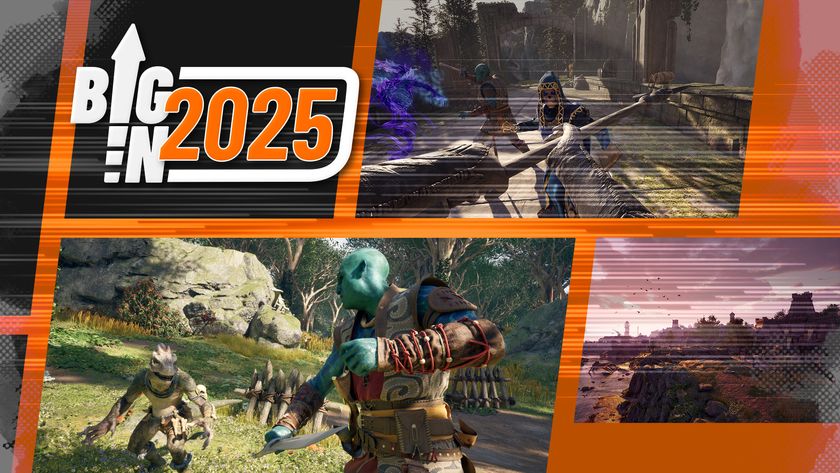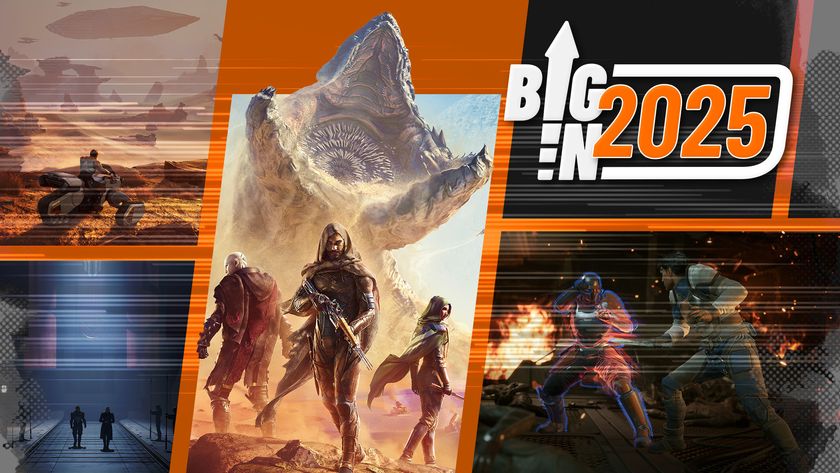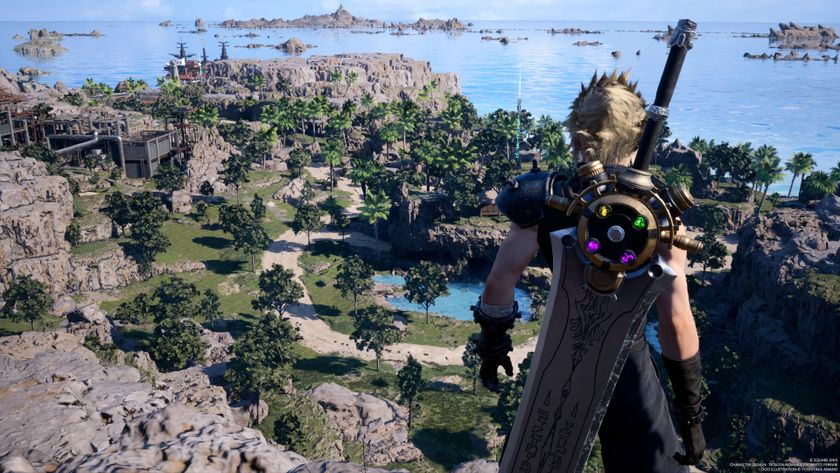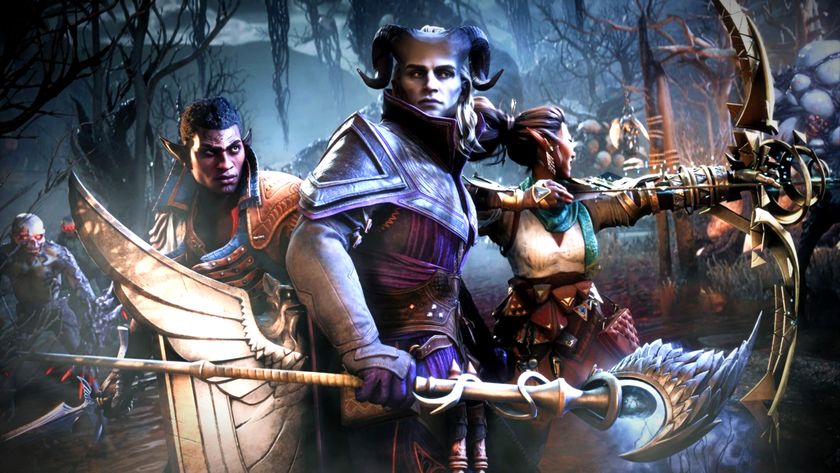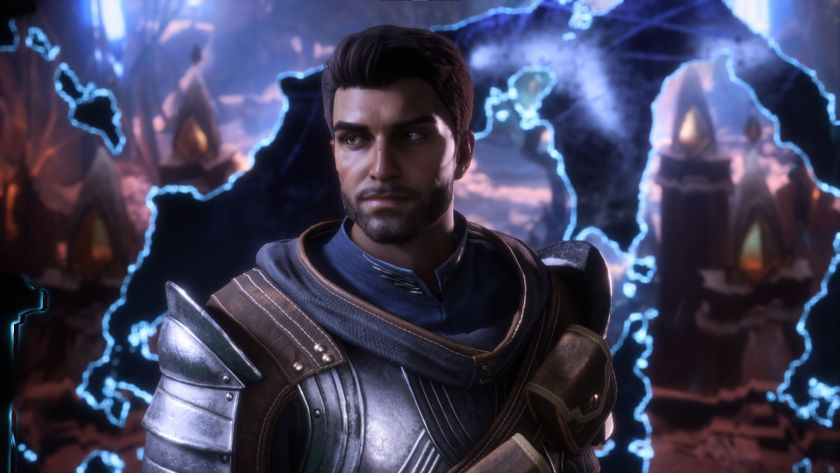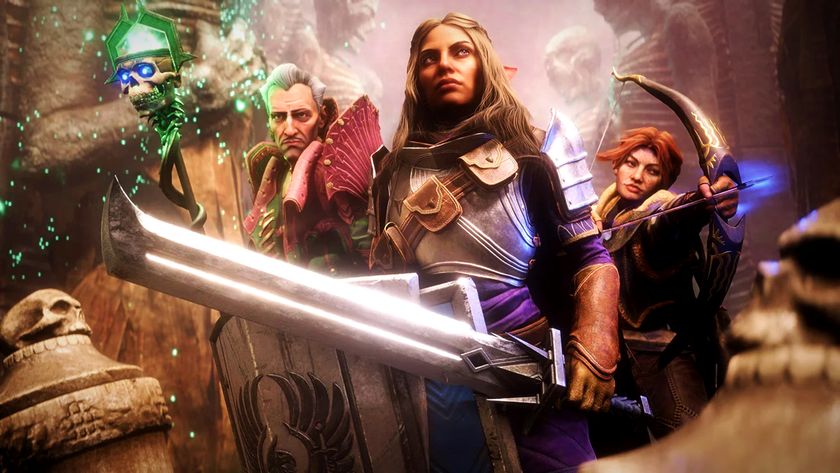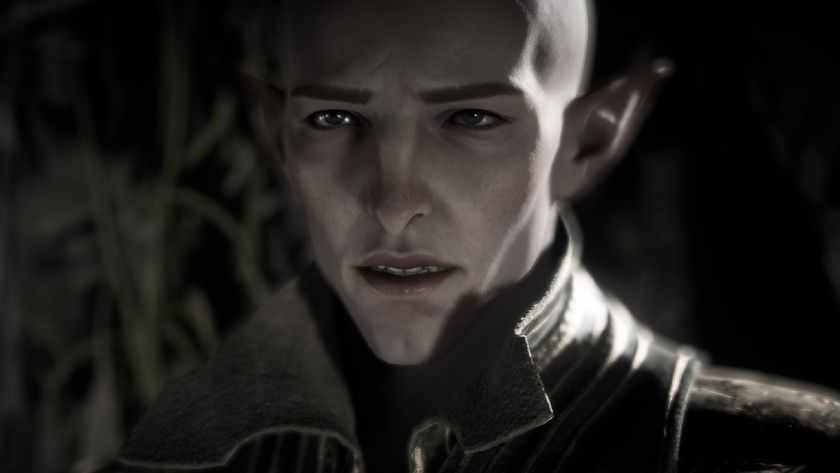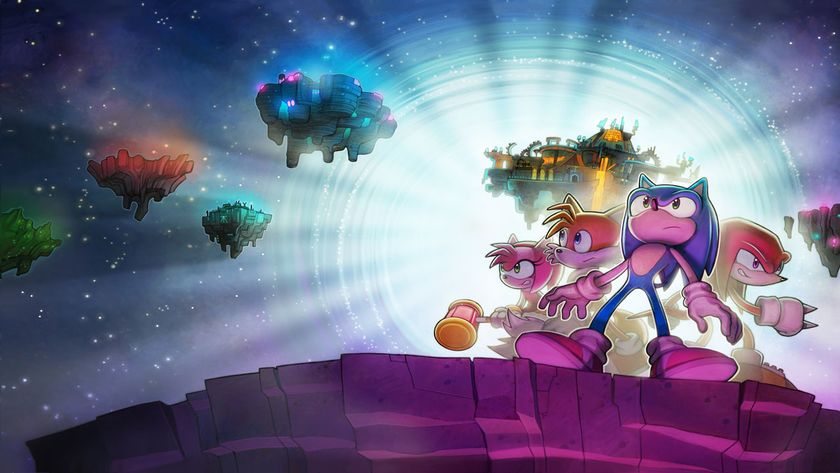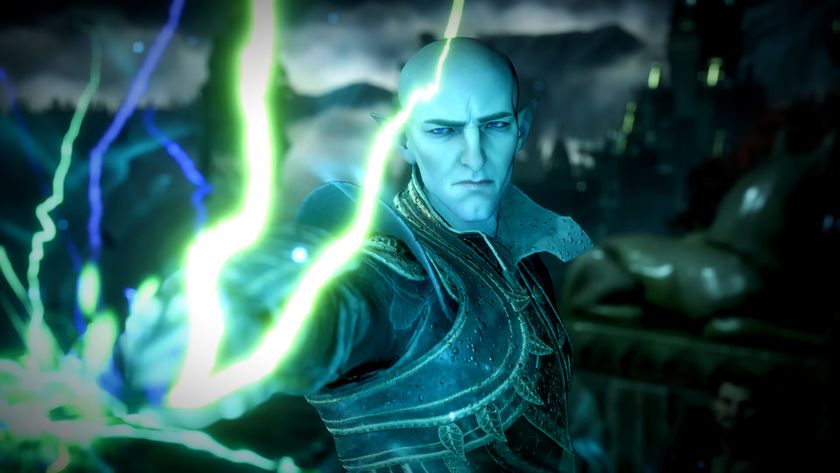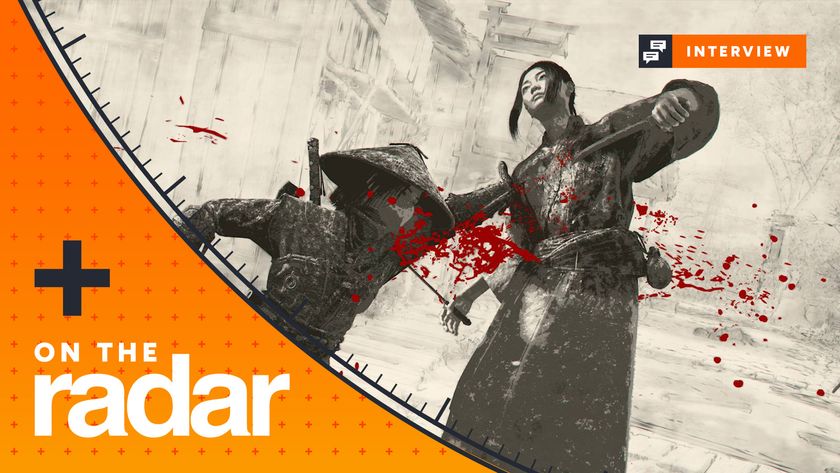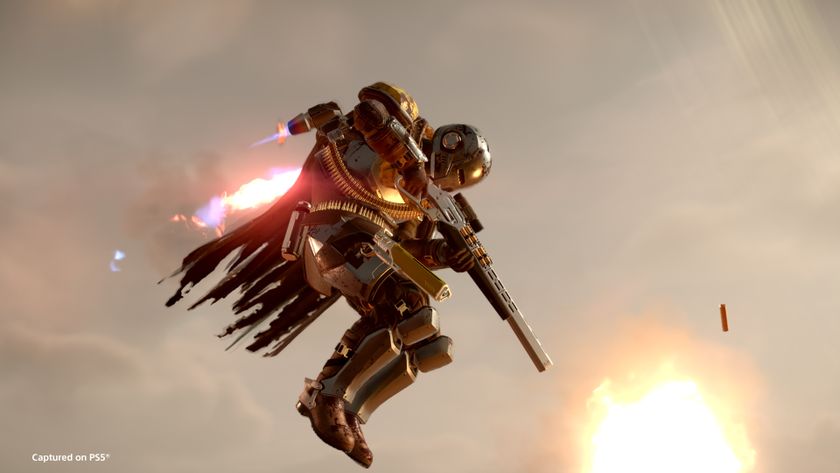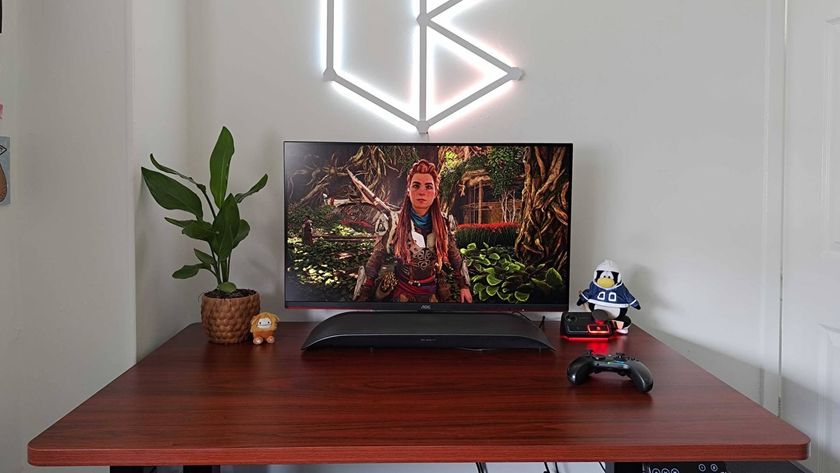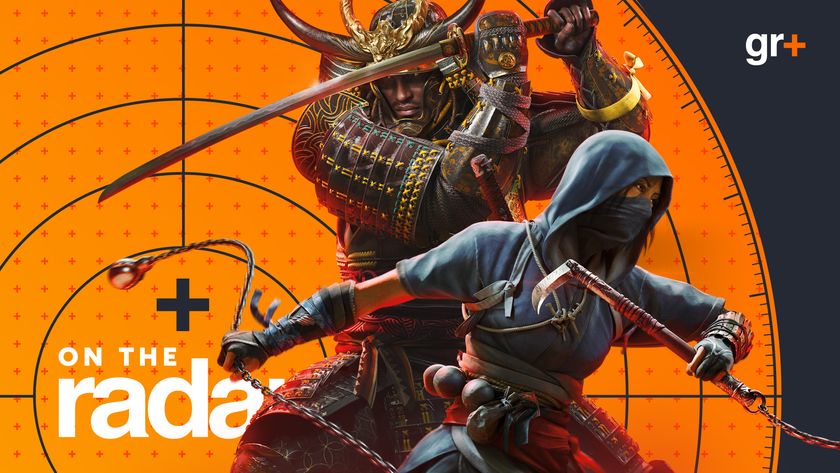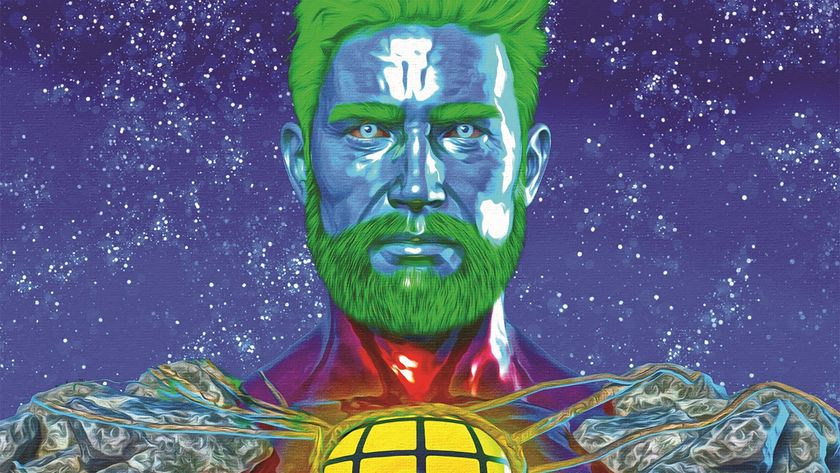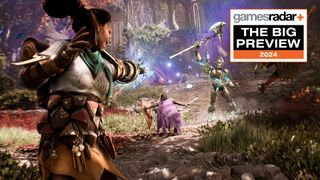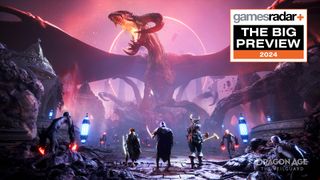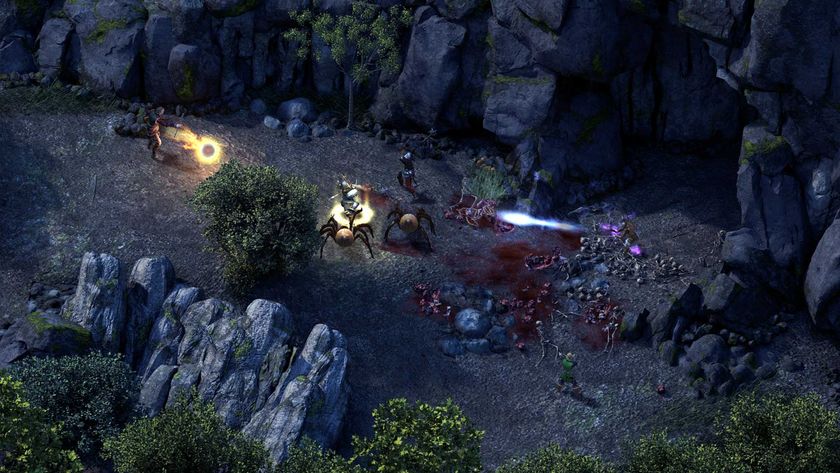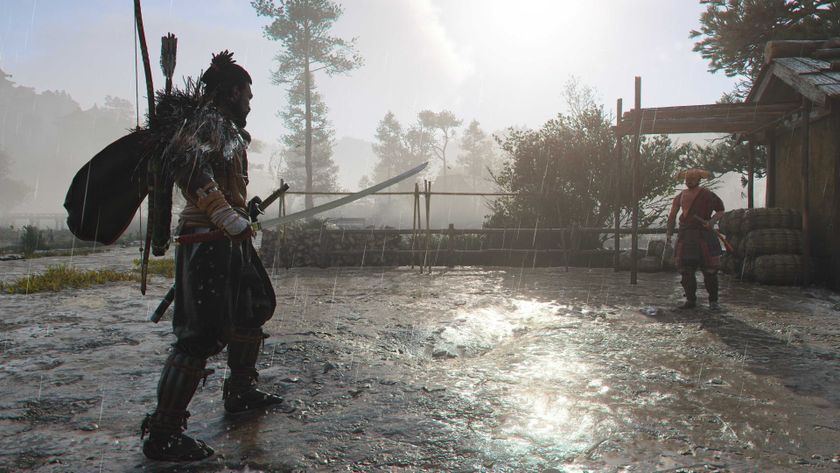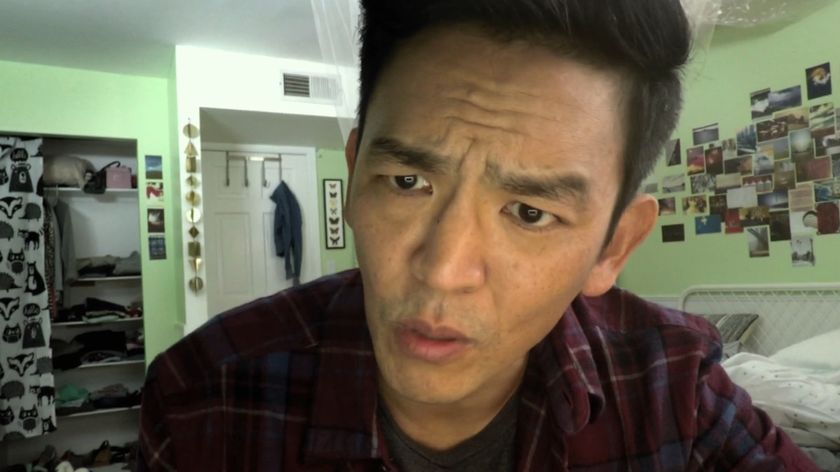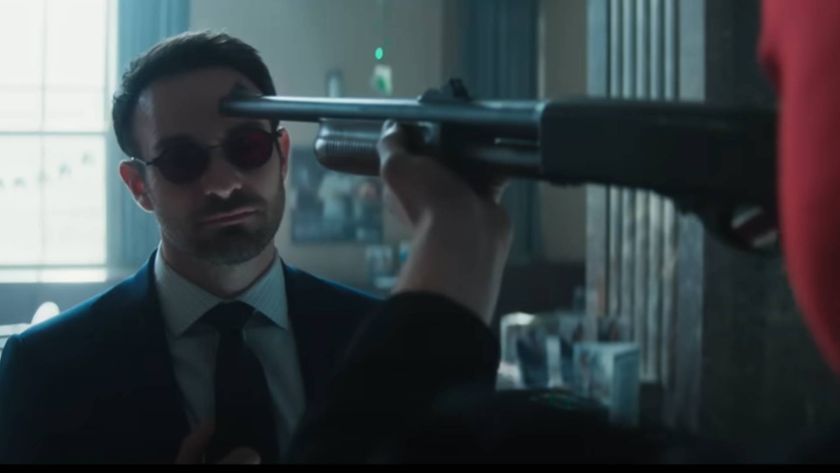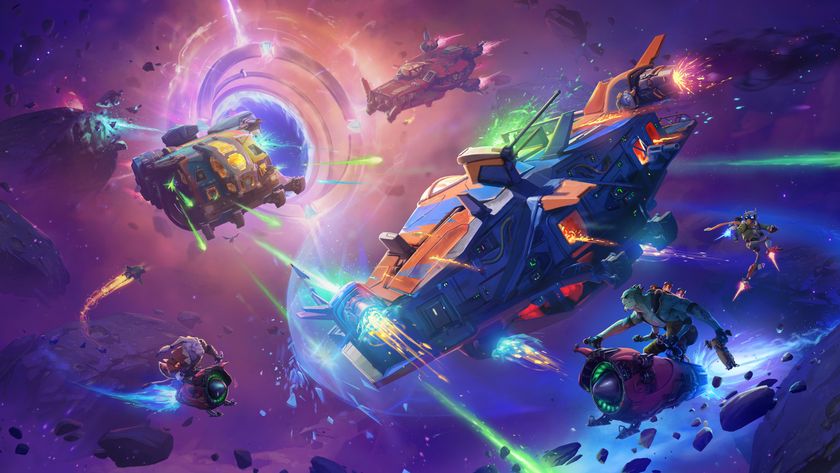Dragon Age: The Veilguard creative director answers all of our important questions and some less-important ones: "I am a Final Fantasy 10 diehard; I love the Sphere Grid"
Interview | "This game is definitely going to some degree feel like an end to a chapter," says BioWare's John Epler
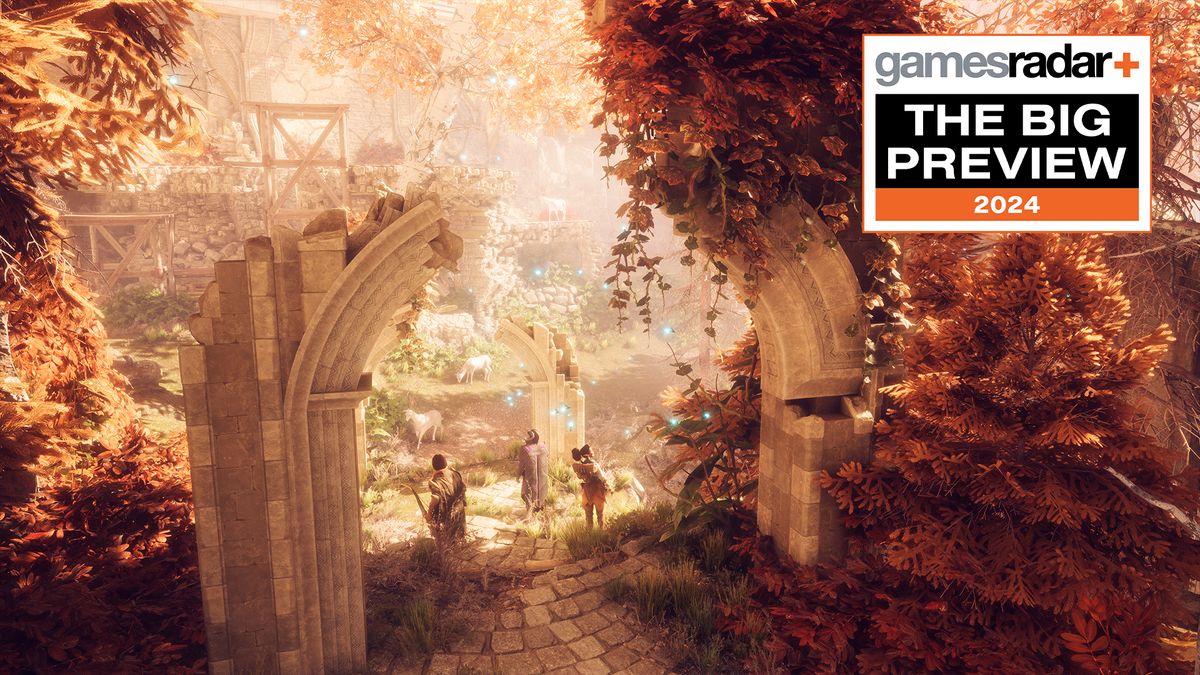
Somewhere roughly in the middle of my several-hour hands-on with Dragon Age: The Veilguard, I was politely tapped on the shoulder and brought in front of John Epler, creative director for the upcoming game. After introducing myself, I pestered him for nearly 20 minutes about everything I could possibly think of – from what a Dragon Age game even is nowadays, to how the team appeals to new and returning players alike, and yes, Final Fantasy 10's Sphere Grid. (I swear it's relevant, please don't leave.)
Despite the somewhat jarring nature of being pulled directly from a high-intensity RPG into a significant interview, I like to think I managed a fairly coherent line of questioning with a backbone of "how" and "why" with the occasional "what" thrown in for good measure. I'm pretty sure I might have even accidentally come across as confident. Epler, for his part, certainly was.
In an effort to fully highlight his answers about all things Dragon Age: The Veilguard, as well as my totally excellent questions, we're running the interview as a full-on Q&A. It's not going to satisfy anyone's deep, personal need for niche lore – I did also try to get him to speak about Harding's weird magic, for all the good it did me, in a bit that ended up on the cutting room floor – but it should add tasty context to what the developers were trying to do, how they got to where they are now, and even perhaps what the future of the franchise has in store.
The following interview has been lightly edited for length and clarity.
Dragon Age: The Veilguard – The Big Preview
This month, we're diving deep into one of our most anticipated RPGs of the year. To find all our coverage, visit the Dragon Age: The Veilguard Big Preview hub.
From past to present
12DOVE: The Dragon Age games specifically are built on the backs of, at this point, decades worth of choices and consequences. When you're looking at making a new game, how do you square all of that?
John Epler, creative director for Dragon Age: The Veilguard: One of the great things about Dragon Age: The Veilguard, and this wasn't actually the reason we did it, but it was convenient is… we're Northern Thedas now, so a lot of decisions that you had made in Southern Thedas that are hugely important for Ferelden, for Orlais… Who's the Divine doesn't actually matter that much once you get to Tevinter, because they've got their own branch of the Andrastian religion. They've got a Black Divine.
So that's part of it, but the other is just finding those choices that we actually feel we can do something meaningful for and never invalidating the player choice. That's the key – we may not always reference your choice, because it may not have an actual impact on the story that you're telling right now, but we're never gonna be like, "And that thing you did never happened." So it's a balancing act, for sure, because again, we want to make sure that we respect player choices, but also we need to make sure that our games don't get so complicated we're basically building the game six times each time we build it.
Sign up to the 12DOVE Newsletter
Weekly digests, tales from the communities you love, and more
Dragon Age: Origins is a vastly different game than what Dragon Age: The Veilguard is and will be, right, naturally occurring over this time. But what makes a Dragon Age game a Dragon Age game in 2024?
I think Dragon Age, all the way back to Origins, has always been about the characters. Dragon Age: Origins obviously had a fairly significant cast of companions. You had Leliana, Morrigan, Sten, Alistair, Oghren, Wynne… and that's always been at the heart of what makes Dragon Age. Dragon Age is characters and choices that matter, that have an impact on the world.
So in the case of both Origins and The Veilguard, we want to make sure that you feel like you are impacting the world around you, but also impacting the people around you in a much more personal way. And I think that's been true of every Dragon Age game; it was true of DA2, it was true of Dragon Age: Inquisition, true of The Veilguard, and is true of Origins as well.
Getting into character
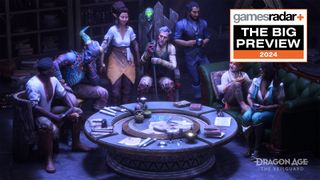
That said, The Veilguard. I mean, it's The Veilguard, right? There's a very clear emphasis on the party. Dragon Age: Inquisition has the Inquisitor on the front of the cover; you've got everybody showing up here for Veilguard. When was that decision made to really hone in on the characters like that?
Pretty early on, honestly. We really wanted to make this about the companions. When we built Inquisition, when we built Trespasser, the thing people talk about the most – they don't talk about necessarily Corypheus and the tear in the Veil. They talk about their experience with Dorian, they talk about their time with Iron Bull, they talk about Cole, and, I mean, they talk about – let's talk about the elephant in the room – they talk about Solas and how much his character arc influenced them, how much they care to either kiss him or punch him. There's other options, but those seem to be the most common.
And so from the beginning, we wanted this to be a story about the people around you, about the companions. It especially started coming together once the companions were actually built, and we realized we wanted to build these characters for – one of the things people talk about the most, and it wasn't necessarily a massive choice, but the mission [in Dragon Age: Inquisition] where you go with Iron Bull to save or to let the Chargers die, people talk about that all the time. And when people talk about even the critical path like Halamshiral, they talk about the companions. The way that Solas had to deal with the racism of Orlesian society and things like that. It just felt like a natural focus for us.

It also lets us tell a story, I think, in a way that ultimately ends up being more interesting and "characters not causes" has been kind of our watchword for the series. Plight of the Wardens, what's happening with the elves – interesting enough, but if you don't have a face to attach that, it's hard to make people care as much. But once you put a face, once – again, talking about Solas – once the elves become represented or what happened to the elves becomes represented by this character that you love or hate, it becomes a lot more interesting.
How did the team decide, "OK, these are the characters we're going with, these are the factions we're going with?" Because there are a bunch that are not represented. And obviously we could sit here and list for hours the returning characters who we have not seen and who are not companions.
For characters and companions in particular, it comes down to, what does the story need in this moment? What kinds of characters? And, more importantly, what kind of characters are we as a team, as a whole, interested in building? It's funny, because some of the existing factions, the Grey Wardens existed before. And when we were talking about Davrin, it was like, "OK, we want to make a Grey Warden, what's an interesting story to tell about a Grey Warden?" And talked a little bit about Assan and that.
But other characters – Bellara existed before there was a Veil Jumpers faction. Originally she was going to be strictly a Dalish character. And then we were like, "OK, the Dalish have a great story, but also Solas has been letting raw magic back into this world. Things are going weird in Arlathan. What about a faction that their purpose is to try to contain this spread of this raw, ancient magic?"
We drew a lot of inspiration there from Roadside Picnic, Annihilation, kind of that weird reality type of fiction. But the faction then became, OK, what does that mean? What is the character of Bellara? As a Veil Jumper, how does she impact the world? How is she affected by the story of Solas, but also the story of Elgar'nan and Ghilan'nain, who've now emerged, and are now targeting the world. If you're an elf, especially if you're a Dalish elf, that's gonna be a bit of a bit of a mind screw, because those are your gods, and now they're out. So what does that story look like?
Them's fightin' words
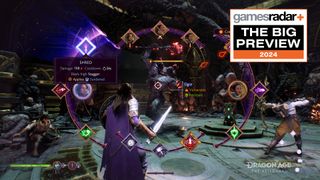
Dragon Age: The Veilguard's gameplay as compared to Dragon Age: Origins is vastly different, but not so vastly different from Inquisition, which was not so vastly different from Dragon Age 2. It has continued to evolve, and here and now, it feels very "action RPG." What do you see that brings to the game as opposed to going the Baldur's Gate 3 route?
For us, a lot of what it brings to the game is making you feel like you are Rook, making you feel like you inhabit this world, making every motion, every button press do something meaningful in the world. Because, again, this is a story that is as much about Rook as it is about the companions, and we want you to feel like you're playing through this story.
Previous games, because of technological restrictions, we had to do a lot of this through cutscenes. I'll use Siege of Adamant as a great example in DAI. That was a big cutscene sequence, and you played through the very tail end of it, and part of that was we just couldn't make it work as a gameplay sequence. Now that we can, we want you to feel it, and part of that is giving you that much more immediate control, making those motions matter, making every move matter, while still also allowing that tactical layer, that strategic layer of, what abilities do I choose? Who do I use when? Pause and play through the combat wheel.
With Dragon Age: The Veilguard, you've got people like me who've played the whole series who are coming in very knowledgeable about everything that Dragon Age is and was. But then you're also absolutely going to get people who were not old enough to play a Dragon Age game the last time one came out. How do you introduce those people to this world?
Honestly, it's a big fantasy world with a spectacular story. And I think, as you see in the trailer that we released, there's a lot of stuff there that if you're a Dragon Age fan, you're like, "Oh, wow, I know who that is and what that is." But if you're not, it's a big fantasy spectacle. Obviously, Baldur's Gate last year; fantasy is big right now. House of the Dragon, people love Rings of Power.
But on a more design-focused level, it's a lot about making sure that if we're introducing unfamiliar concepts early on, we're pairing them with concepts you may be a little bit more familiar with. For example, "Evanuris" is a word that, if you're not a Dragon Age fan, means literally nothing. But so for the first few hours of the game, any time you see "Evanuris," we're also saying "elven gods" so you understand that, "OK, these two concepts are linked."
It's about – I describe them as capital letter words – trying to avoid, at least in the first few hours, using exclusively capital letter words, and making sure that players who are new to the franchise and new to the games can kind of get a sense of, "OK, know what these things are and what these concepts are," while also allowing players like yourself who've been with this for a long time, those moments of recognition, those moments of even being able to feel a clever occasionally like, "Oh, I know what's gonna happen, because I know how these two concepts work here."
I've heard, to talk about the proper noun problem, it's like Tolkien can get away with that, but everyone else, you need to be very careful.
Tolkien can get away with it, because Tolkien will write like 18 paragraphs describing a proper noun, and I say this as a massive fan of Lord of the Rings, I've watched the movies multiple times. I have the books, I've read the books more times than I can count. But he can do it because, again, when you go into a Tolkien book, you're expecting a lot of prose and a lot of exposition. A game's a little bit different. You can't make a 40-minute title scroll at the beginning of your game to explain all your proper nouns.
Skills as far as the eye can see
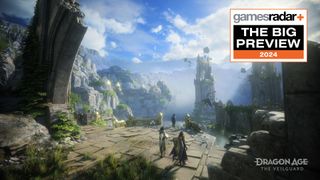
It was really funny to open up the skills menu and see the vast Sphere Grid-style upgrades. Obviously I feel like there's this kind of push and pull about just like, adding extra numbers to things, right?
Funny enough, that was one of the things that we wanted to make sure we got away from. Because sometimes you'll get a skill tree, and it'll be like, choose this skill for one more damage. We wanted to make sure that any numbers that were in there were at least meaningful enough to show up in your play, but also allow you to play the class very differently based on how you spec it up.
It's funny you say Sphere Grid, because when they showed me – like, it's the Sphere Grid, and I am a Final Fantasy 10 diehard; I love the Sphere Grid. Getting that opportunity to kind of build your character out, especially as you move towards the specializations. Rogue is a great example. "I'm much more of a ranged player," so you start speccing towards Veil Ranger.
My absolute favorite, I mean it changes all the time, but right now my absolute favorite is the [Spellblade] in the mage class. And what I love about that one is just, if you're an Antivan Crow and you're a mage, how does that work? And like that is our answer to that question. No, you're not gonna stand on a rooftop like 20 meters away throwing fireballs, you're gonna get in close and shank them, but you're gonna have magic to shank them with.
What do you hope people take away from Dragon Age: The Veilguard when they are able to play?
Honestly, I hope people take away the companions. I also hope people take away the idea that there's a lot more stories to tell in Thedas, there's a lot going on. This game is definitely going to some degree feel like an end to a chapter, but it's the beginning of a new one as well. I just think… seeing those companions, seeing how they interact with the world, and falling in love with Thedas all over again, or in a lot of cases for the first time.
Dragon Age: The Veilguard is set to release on October 31, 2024 for PC, PS5, and Xbox Series X. If you're looking for something to hold you over until then, you could always check out some of the top games in our ranking of the best RPGs.

Rollin is the US Managing Editor at 12DOVE. With over 16 years of online journalism experience, Rollin has helped provide coverage of gaming and entertainment for brands like IGN, Inverse, ComicBook.com, and more. While he has approximate knowledge of many things, his work often has a focus on RPGs and animation in addition to franchises like Pokemon and Dragon Age. In his spare time, Rollin likes to import Valkyria Chronicles merch and watch anime.
